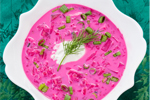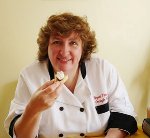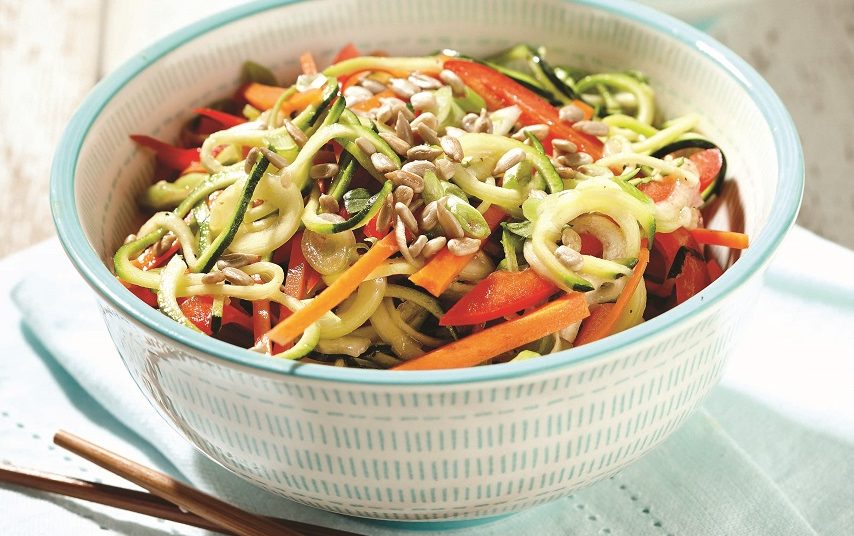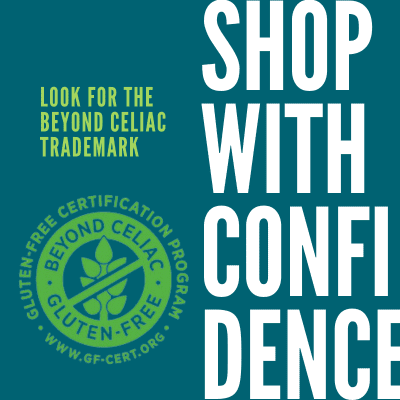06/01/2018
COLUMNS
HEALTH/WELLNESS
Note from Alice: Two Scientific Celiac Studies, One Conclusion

In the world of celiac disease research, it would be a lot simpler if every study led scientists, physicians and patients on a clear, straight path to better diagnosis, management and treatment of celiac disease.
But it turns out what we learn in the lab (and from those with celiac disease living in the real world) is a lot more complicated than that.
Two recent studies are a good example of the way in which research conclusions can seem to conflict and leave celiac disease patients and their families wondering what to do.
In one, researchers from the Department of Health and Behavior Studies and the Columbia University Celiac Disease Center found that study participants who were “hypervigilant” about their gluten-free diet had a reduced quality of life. They had more anxiety and fatigue. In other words, all the worry about the potential for gluten, mainly from cross-contact, ate away at their enjoyment of food and social connection and made them generally less happy and less energetic.
Soon after, a study by researchers working on latiglutenase, a drug to treat celiac disease in phase two of clinical trials, found that most celiac disease patients on a gluten-free diet are still consuming harmful amounts of the damaging protein in wheat, barley and rye. Scientists looked at measurements of gluten found in urine and stool tests of those on a gluten-free diet, along with data from the clinical trial, and concluded those on a gluten-free diet can’t avoid accidental gluten exposure. And the small amounts they are consuming are sufficient to trigger symptoms and may contribute to damage to the intestine.
You might be shaking your head trying to figure out what this means. It’s bad to worry excessively, and yet you can’t be careful enough to avoid doing damage to your intestine.
To me the conclusions of these studies actually point to the same hard fact about celiac disease and the gluten-free diet, the only treatment we have had for decades. That is, the gluten-free diet requires very, very fine tuning, so much so that it is nearly impossible for it to be 100 percent effective.
This truth has been revealed, painstakingly, over and over again, as researchers have studied what is going on with celiac disease patients, including those who have symptoms and those who don’t. So, the old assumption that the gluten-free diet is all you need is no longer accepted by many celiac disease experts. Patients, especially those who improved greatly on the gluten-free diet and now feel fine, can find this hard to believe. But science is about questioning assumptions and following where the evidence leads.
What that evidence says to me is that celiac disease shares some characteristics with type 2 diabetes and heart disease, two conditions where food helps manage the disease but a treatment is highly beneficial to both the patients health and quality of life.
For those who have celiac disease, treatments now being investigated would give you enough protection that you would not have to stress over the fine tuning still required when you eat a gluten-free meal in a restaurant or consume gluten-free packaged foods, both of which might contain some gluten from cross-contact. For now, none of the treatments are being proposed as a replacement for the gluten-free diet. Instead they would be used along with it.
Perhaps, as scientists keep searching for answers and doing studies with varied and sometimes conflicting results, they’ll come up with answers that offer a more thorough treatment and one day a cure. That’s our mission at Beyond Celiac. By joining Go Beyond Celiac you can help provide answers to scientists who fortunately keep asking questions. Thanks in advance for being part of the solution.
To living life Beyond Celiac,
Alice Bast
Beyond Celiac CEO
Gluten-Free Cooking with Oonagh
Gluten-Free Chilled Beet Soup
 This chilled gluten-free Lithuanian soup, also known as šaltibarščiai(pronounced shaltee-barsh-chay), is ideal for a summer luncheons and garden parties. GET THE RECIPE
This chilled gluten-free Lithuanian soup, also known as šaltibarščiai(pronounced shaltee-barsh-chay), is ideal for a summer luncheons and garden parties. GET THE RECIPE
Gluten-Free Sweet Summer Sauces
 Three simple gluten-free recipes for summer sauce staples: caramel sauce, chocolate ganache and raspberry sauce… Yum! GET THE RECIPES
Three simple gluten-free recipes for summer sauce staples: caramel sauce, chocolate ganache and raspberry sauce… Yum! GET THE RECIPES
About Chef Oonagh Williams

British born Chef Oonagh Williams holds a culinary arts degree and spends her time cooking, writing, speaking, and educating the public on gluten-free and allergy-free diets. She herself has celiac disease along with other food allergies. When not writing or speaking nationally on food, she teaches cooking classes, hosts dinner parties, and offers one-on-one help. Locally, she teaches healthier food cooking classes including vegetarian cooking for everyone, as most real food is naturally gluten-free and free of many other allergens. Chef Oonagh had the honor of being a speaker at the Boston Celiac Symposium, alongside top doctors from Beth Israel, Mass General, and Harvard Medical School.
Buy herDelicious Gluten-Free Cooking e-book, over 200 pages, full color photos, only $20;
like her Facebook page, Gluten-Free Cooking with Oonagh, where she posts recipes, links to her appearances, and gluten-free products she’s discovered; and connect with her on Skype for help in following a food allergy diet.
The Beyond Celiac Young Investigators Awards
 Beyond Celiac has made the commitment to expand the number of researchers in the field by recruiting young investigators–post-doctoral scientists at the beginning of their careers whose work will be mentored by established celiac disease researchers. Help us fundraise to meet this important goal! LEARN MORE
Beyond Celiac has made the commitment to expand the number of researchers in the field by recruiting young investigators–post-doctoral scientists at the beginning of their careers whose work will be mentored by established celiac disease researchers. Help us fundraise to meet this important goal! LEARN MORE
Voice & Vision: A New Video Series Covering State of Celiac Disease Research
 We’re proud to introduce our Voice & Vision: The State of Celiac Disease Research video series, which provides a powerful way for key opinion leaders to share current findings.Our first episode features notable researcher Markku Maki, MD, PhD, who discusses past accomplishments and future aspirations in the field of celiac disease research… WATCH THE VIDEO
We’re proud to introduce our Voice & Vision: The State of Celiac Disease Research video series, which provides a powerful way for key opinion leaders to share current findings.Our first episode features notable researcher Markku Maki, MD, PhD, who discusses past accomplishments and future aspirations in the field of celiac disease research… WATCH THE VIDEO
Are We Looking for Celiac Disease in the Right Places?
 Despite growing awareness, most people who have celiac disease still have not been diagnosed. Although celiac disease affects about 1 percent of the population— 3 million people in the United States — about 80 percent don’t know they have the genetic autoimmune condition…
Despite growing awareness, most people who have celiac disease still have not been diagnosed. Although celiac disease affects about 1 percent of the population— 3 million people in the United States — about 80 percent don’t know they have the genetic autoimmune condition…
Celiac Disease Research Under the Spotlight
 The focus on celiac disease research will be strong in early June when those who study celiac disease will give presentations about their work at Digestive Disease Week (DDW), the largest international gathering of physicians, researchers and academics in the fields of gastroenterology, hepatology, endoscopy and gastrointestinal surgery…
The focus on celiac disease research will be strong in early June when those who study celiac disease will give presentations about their work at Digestive Disease Week (DDW), the largest international gathering of physicians, researchers and academics in the fields of gastroenterology, hepatology, endoscopy and gastrointestinal surgery…
Allergic Living
: Gluten-Free Zucchini Thai Noodle Salad
By Christina Frantzis
 Feel free to twirl, swirl and slurp. This all-vegetable, gluten-free concoction skips on the guilt for second helpings, and kids will love it…
Feel free to twirl, swirl and slurp. This all-vegetable, gluten-free concoction skips on the guilt for second helpings, and kids will love it…
GET THE RECIPE on
Allergic Living.
Photo credit: Andrew Grinton/Allergic Living
Our Latest Facebook Live Video
What’s Hot
- Go Beyond Celiac: join today to help advance celiac disease research.
- Beyond Celiac Swag: otter-ly adorable merchandise that helps suppoert celiac disease research.
- The War on Gluten: An article covering the latest on what’s really behind gluten sensitivity.






 Gluten-Free Survival Tips for Summer Parties/BBQs
Gluten-Free Survival Tips for Summer Parties/BBQs


